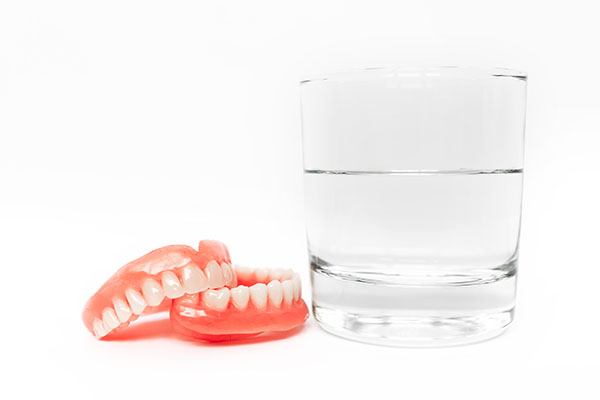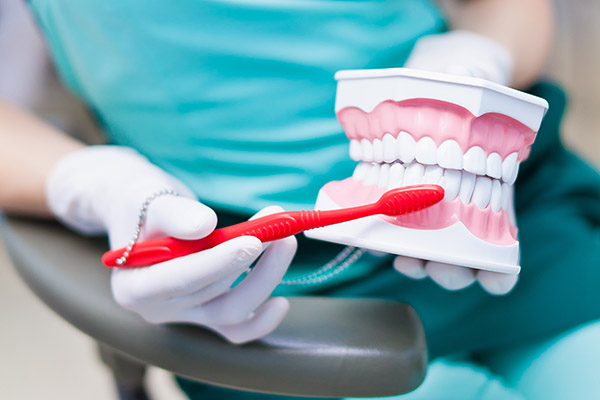How Can a Crown Restoration Improve My Smile?

A crown restoration does more than repair a damaged tooth. It can also improve your smile. If you are not happy with your teeth, you can consider a restoration. Crowns can be placed on both front and back teeth, making this a good choice for a smile makeover.
Improving a smile with a crown restoration
Crowns are hollow restorations that are placed over teeth. Crowns made of porcelain and porcelain-infused metals are created to match the color of the existing teeth. Once the crown is placed, it looks and functions just like a natural tooth. These restorations improve smiles in various ways.
Repair damaged teeth
Damaged teeth hurt the look of a smile. When teeth are chipped, fractured or heavily decayed, the damage is often the first thing others notice. Dentists remove the damaged areas and then place the crown. The crown makes the tooth functional again while providing aesthetic benefits.
Replace missing teeth
Missing teeth make people feel self-conscious. It is difficult for people to flash a smile when one or more teeth are missing. Dental crowns can be attached to bridges or implants. The crowns replace the gaps in the mouth and make the smile look full once again. Along with providing aesthetic benefits, replacing a missing tooth with a crown also makes it easier to eat and talk. In addition, the crown will prevent other teeth from moving to fill the gap.
Protect teeth that are prone to cracks and breaks
People with fragile teeth cannot help but worry with each smile. They never know when a tooth might break and it makes them nervous. Crowns are often used to protect weak teeth. The dental crown material is very strong and not prone to chips and cracks, so people can flash smiles without fear.
Repair worn down teeth
People who suffer from bruxism often have worn down teeth. Worn down teeth are not aesthetically appealing and cause other issues. For example, many people with bruxism also experience tooth sensitivity because the grinding wears the teeth down so much the nerves become exposed. Dental crowns can be used to fix this issue. Once the crown is placed, the teeth will look normal once again. Also, the crown will cover and protect the tooth’s nerves.
Cover imperfections
Some people choose dental crowns for purely cosmetic reasons. A crown restoration covers teeth stains that have been resistant to whitening treatments. Crowns also cover crooked and misshapen teeth and can even be used to lengthen teeth that are not long enough. When patients want crowns for purely cosmetic reasons, the dentist will conduct an examination to ensure it is a wise restoration choice. The dentist might recommend a less-invasive restoration option in these cases.
Improve your smile with a crown restoration
Dental crowns repair and replace damaged teeth, restore worn down teeth and even hide imperfections. If you are considering this procedure, meet with your dentist. Your dentist will talk to you about your desired outcome and determine if you are a good candidate for crowns.
Request an appointment here: https://stonecanyondental.com or call Stone Canyon Dental at (972) 996-3191 for an appointment in our Sunnyvale office.
Check out what others are saying about our services on Yelp: Read our Yelp reviews.
Recent Posts
Proper denture care is a crucial part of maintaining the appliance and its benefits. If you are a new denture wearer, you may be questioning how to care for them at home. Here are four tips for taking care of your dentures at home.It is important to remember that just because you have dentures does…
When you have dentures, you must remember this: proper denture care starts with treating your dentures just like natural teeth. You should keep your dentures clean and shiny to help maintain your new smile. Keeping your dentures and mouth clean will help to extend the life of your new smile! Here are four tips on…
When there is an aesthetic issue with one of your teeth, dental bonding may be an effective treatment option. Common problems addressed by bonding include broken teeth, severely discolored teeth, or teeth that are slightly off in shape or size. Since they are not as durable as other restorative treatments, bonding is usually used for…
We all want to keep our teeth and gums healthy, but sometimes it's difficult to properly do denture care while enjoying the foods we love. The foods we consume can make a big difference in how well our dentures fit, so avoiding certain food items is an important step for easy denture care. Dentures are…







